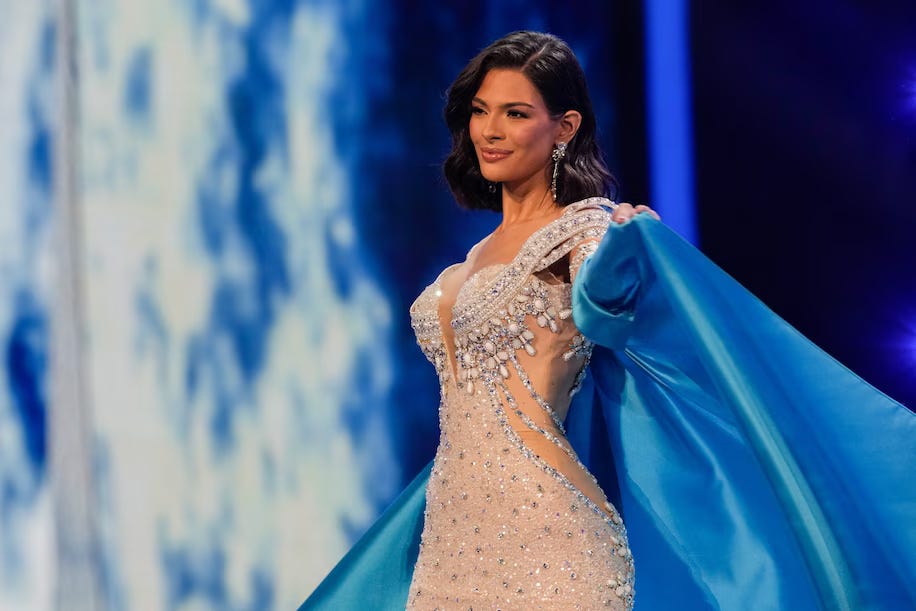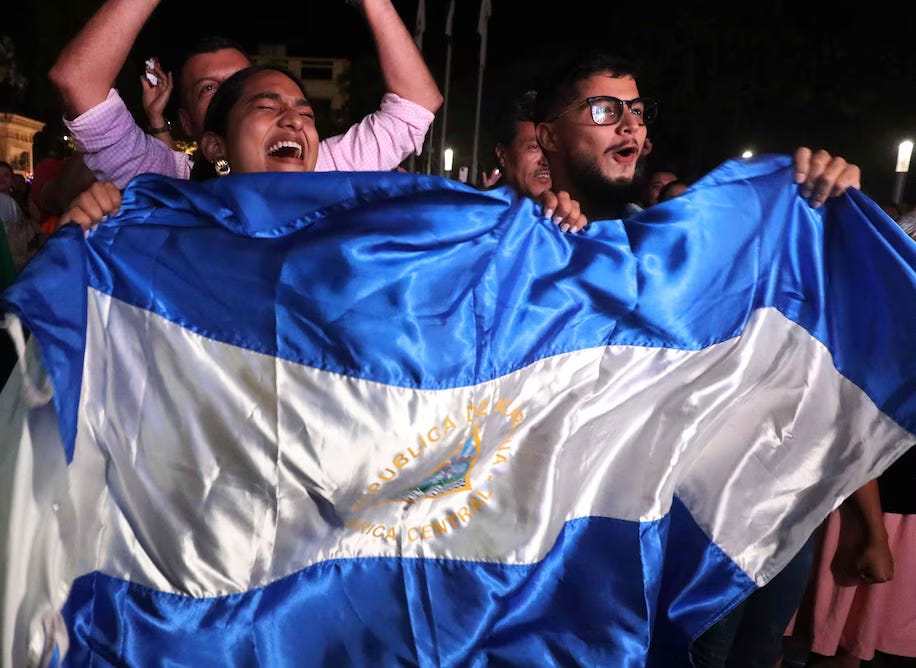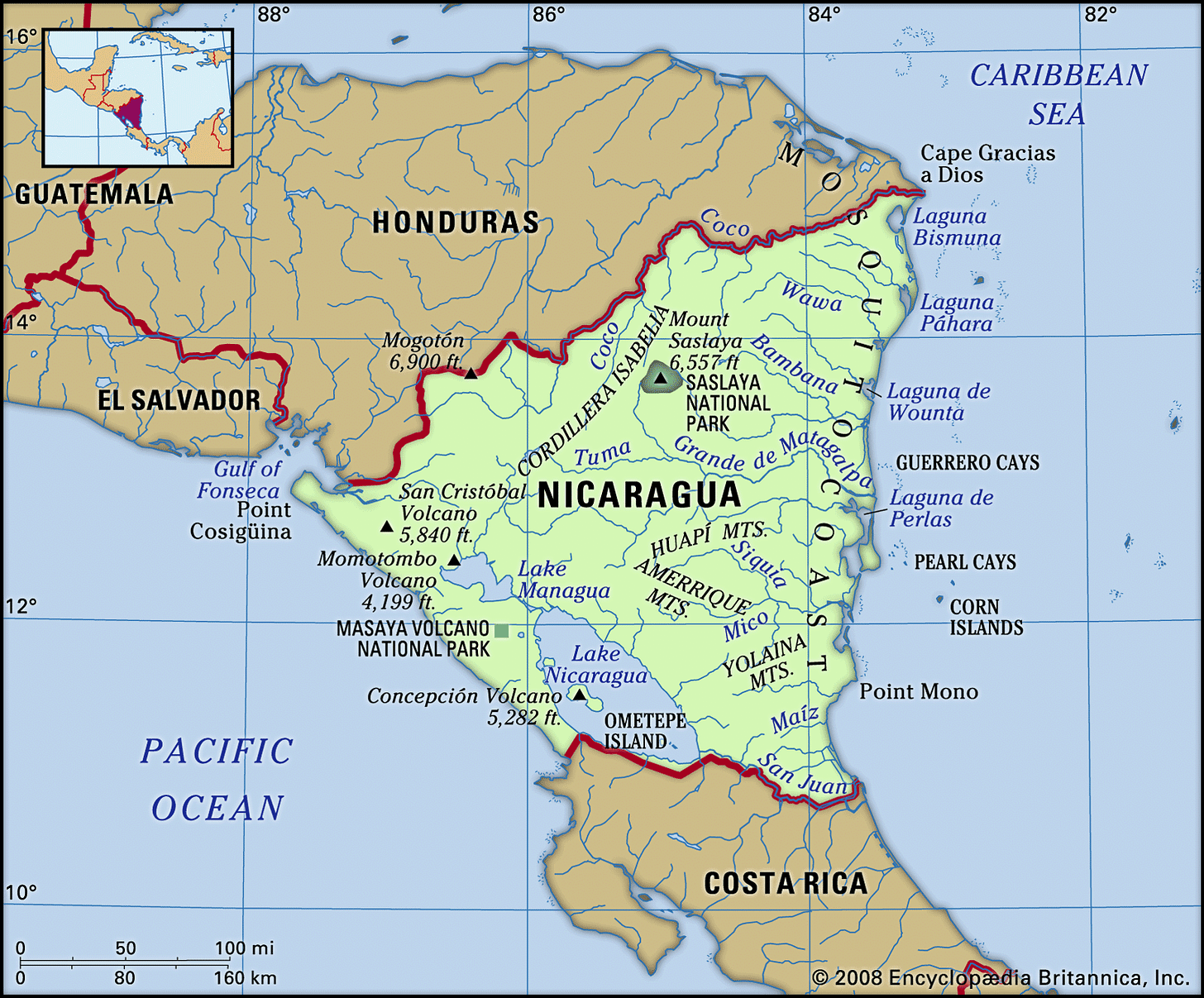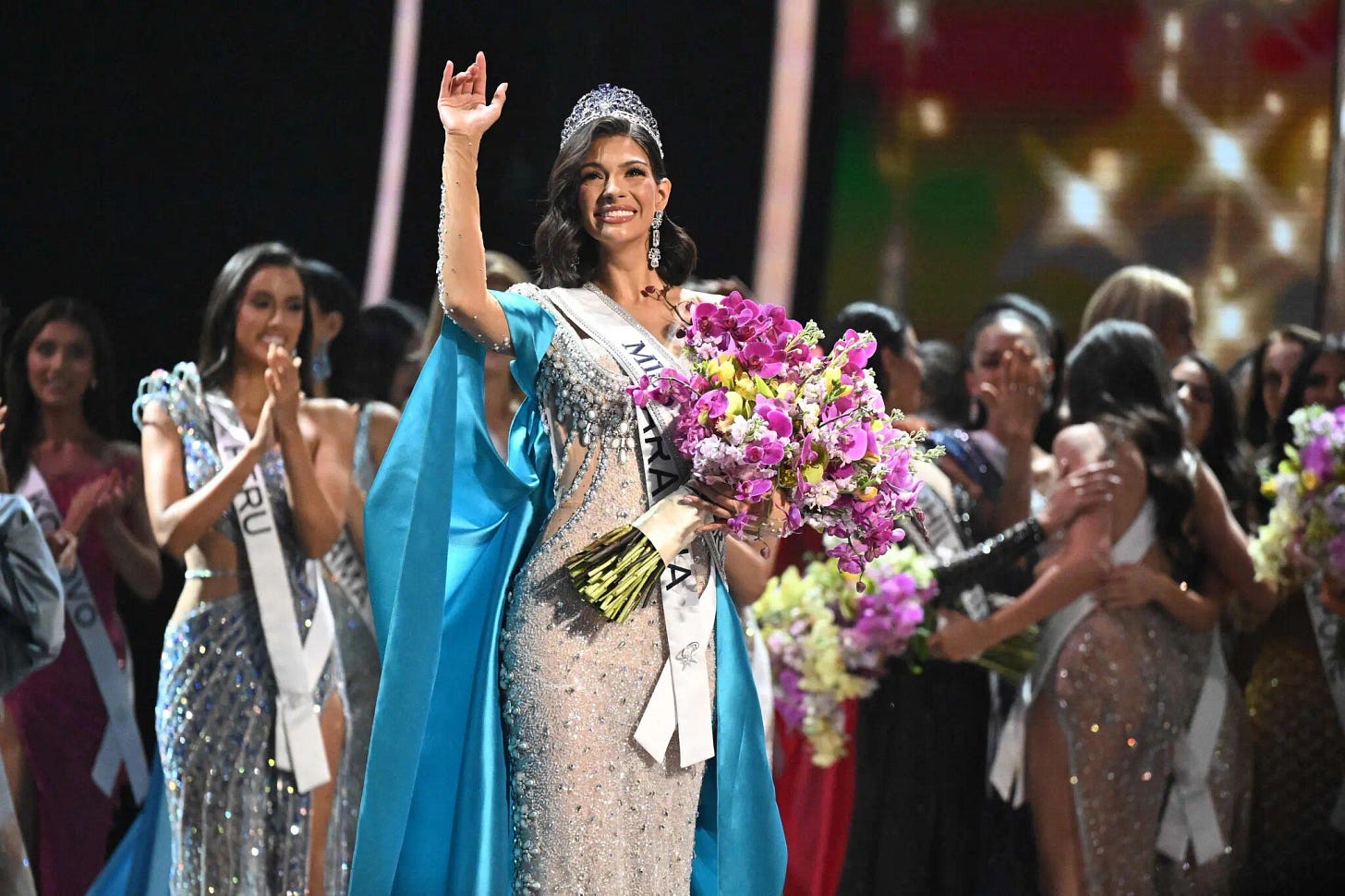The Beauty, the Beast, and a Banana Republic
NICARAGUA: Unraveling the Tapestry of Beauty Pageants and Purported Political Plots.

A Victory for Beauty and a Triumph for Freedom?
The crowning of Sheynnis Palacios as Miss Universe, a groundbreaking achievement for Nicaragua, set off a chain of events far beyond the glitter of beauty pageants. This landmark victory, the first of its kind for the nation, initially enveloped the official response in a radiance of "legitimate joy and pride." However, this triumph in the realm of beauty and grace swiftly spiralled into a realm of political discord. The revelation of Palacios' involvement in the 2018 anti-government protests stirred a wave of insecurity within President Daniel Ortega's regime, prompting a harsh and decisive crackdown on those linked to the pageant. This reaction laid bare the underlying tensions in Nicaraguan society and governance, highlighting the complex interplay between cultural achievements and political power.
About the Central American Nation
Nicaragua, a relatively small but vibrant Spanish-speaking country, has been thrust into global limelight. An independent republic since 1838, it is home to around 6.5 million people, with the dynamic city of Managua as its capital. Despite its relatively modest economic position in the Central American region, Nicaragua is distinguished by its rich cultural heritage and the resilient spirit of its people. The recent events surrounding the beauty pageant victory have spotlighted Nicaragua's unique stance at the intersection of cultural celebration and political dynamics. Here, a triumph in the world of beauty pageants transcends mere glamour, symbolizing a deeper national identity and becoming an unexpected catalyst for political discourse and expression.
The Beauty Queen and the Dictator
This narrative transcends the story of just a beauty queen; it delves into a saga of fear, authority, and defiance. Since assuming power in 2007, the 78-year old President Daniel Ortega, once a left-wing revolutionary, has increasingly tightened his control over Nicaragua. The unexpected victory at the Miss Universe pageant evolved into a potent symbol of resistance to his regime. What began as celebrations soon morphed into bold acts of political dissent, with the populace boldly brandishing the prohibited blue-and-white national flag. The government's reaction was immediate and harsh, targeting not only Sheynnis Palacios, the beauty queen, but also extending to her peers in the pageant and their supporters.
At first glance, Sheynnis Palacios may not seem like a formidable challenge to President Daniel Ortega's Government. Currently residing in New York for her Miss Universe responsibilities, Palacios has remained largely silent on Nicaraguan politics. Her old Facebook account, which once featured her participation in the 2018 protests, has been deactivated. However, her influence and appeal extend beyond her physical absence from Nicaragua. Palacios captivated the Miss Universe audience with her grace, donning a stunning silver gown complemented by a light blue cape, a testament to her humble origins and tenacity. Her journey from selling buñuelos to fund her education to winning scholarships and ascending the Miss Universe stage exemplifies a narrative of resilience and determination.
Broader Crackdown
Palacios' devout Catholic faith further resonates with many in Nicaragua, particularly at a time when the government's relationship with the church is strained. The Ortega administration's aggressive stance, which includes estranging the Vatican and assuming control of institutions like Palacios's alma mater, the Jesuit-run University of Central America, illustrates the broader conflict between the state and religious entities. A former top official of the US State department observes, "She is deeply Nicaraguan, in a way that appeals to almost everyone." Despite international censure, including sanctions from the United States, the European Union, and Canada, Ortega's regime remains undeterred, evidenced by his fourth consecutive presidential term inauguration in January 2022 amidst allegations of electoral farce. The Government's tightening grip over social and political spheres, marked by the shutdown of over 3,000 NGOs, including Mother Teresa's missions and local Rotary Club branches, highlights an increasingly authoritarian rule, indifferent to international opinions and internal dissent.

A Pageant in the Political Crossfire
The repercussions of this political tension have had a significant impact on key figures in the Nicaraguan beauty pageant scene. Karen Celebertti, the figurehead of the Miss Nicaragua pageant that catapulted Palacios to international fame, found herself in the eye of the storm, leading to her resignation amid charges of treason. Currently abroad and barred from returning to Nicaragua, Celebertti's situation has escalated, with her husband and son being detained. They are accused of collaborating in a plot to manipulate the beauty contest as part of a larger, foreign-backed coup attempt, highlighting the extent to which the pageant has been engulfed by the nation's political unrest.
Beauty Pageants and Soft Power
In a world where beauty pageants are often dismissed as superficial, they have sometimes played a role in political narratives. Miss Universe and Miss World contests have often become platforms for broader social and political discussions. For instance, in 1994, a year of immense pride for India, Sushmita Sen and Aishwarya Rai won the Miss Universe and Miss World titles respectively, bringing global attention to India and its women. Their victories were more than just about beauty; they symbolised India's emerging presence on the global stage and the empowerment of Indian women.
Beauty Pageants and Political Power Plays
The unfolding drama in Nicaragua, where a beauty queen inadvertently sparked political turmoil, is not an isolated occurrence. Such instances of beauty pageants intersecting with political landscapes have been noted globally. A notable example is Anastasia Lin, Miss Canada 2015, who was barred from the Miss World pageant in China due to her outspoken political views. Nicaragua itself has a precedent: In 1979, Patricia Pineda, a Nicaraguan Miss Universe contestant, was compelled to withdraw from the competition following threats to her family by the government.
This phenomenon extends to countries like Pakistan, where societal norms and religious beliefs often cast a shadow over participation in beauty pageants. These controversies reach beyond the superficial aspects of beauty and glamour, touching upon deeper issues of social and humanitarian significance. Pageant winners often ascend to the role of influential ambassadors, championing various causes and bringing attention to critical issues. Their platform extends far beyond the pageant stage, impacting social and political dialogues in their home countries and abroad.
Summing Up: Beyond Beauty, a World of Controversy
The ongoing situation in Nicaragua, where an ageing dictator feels threatened by the influence of a beauty queen, underscores the complex interplay between beauty pageants and political power. While these contests can sometimes get embroiled in controversies, especially in nations with restrictive regimes, they often go beyond physical aesthetics. The winners of these pageants, much like the Indian winners of the Miss World and Miss Universe titles, become icons of empowerment and change, transcending the limitations imposed by politics and culture. It is essential to recognize that these events, often dismissed as mere spectacles, can have a significant impact, symbolizing the fight for freedom and equality in various forms across the globe.






